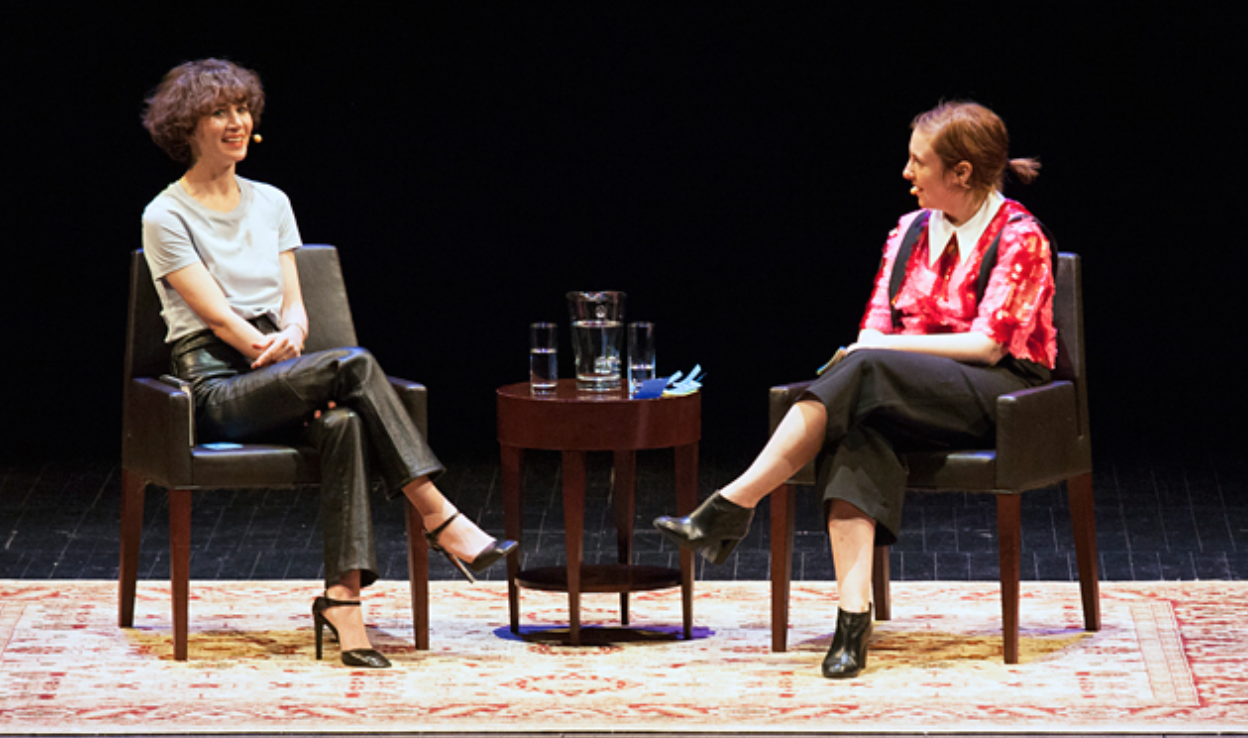 On the evening of January 28, the lobby of the Brooklyn Academy of Music’s grand Howard Gilman Opera House was teeming with women and a handful of bearded men who had braved the cold to watch actress/writer/director Lena Dunham interview her friend, filmmaker/writer/actress Miranda July, about the latter’s new novel, The First Bad Man. Wrapped in wool ponchos, vintage furs, and striped scarves, sporting clever bobs and updos, and peering into their smartphones through steamed-up oversized glasses, attendees (no matter their age, race, gender, and sexuality) resembled extras from Dunhams’s HBO show, “Girls.” Depending on tolerance levels for what might be called The New Creative Class – of which Dunham and July are the reigning patron saints – it was either your ideal snowy New York City evening or your worst nightmare. But the conversation itself was so revelatory that I couldn’t help feeling that something groundbreaking – a new feminist bohemia, perhaps – was being hatched.
On the evening of January 28, the lobby of the Brooklyn Academy of Music’s grand Howard Gilman Opera House was teeming with women and a handful of bearded men who had braved the cold to watch actress/writer/director Lena Dunham interview her friend, filmmaker/writer/actress Miranda July, about the latter’s new novel, The First Bad Man. Wrapped in wool ponchos, vintage furs, and striped scarves, sporting clever bobs and updos, and peering into their smartphones through steamed-up oversized glasses, attendees (no matter their age, race, gender, and sexuality) resembled extras from Dunhams’s HBO show, “Girls.” Depending on tolerance levels for what might be called The New Creative Class – of which Dunham and July are the reigning patron saints – it was either your ideal snowy New York City evening or your worst nightmare. But the conversation itself was so revelatory that I couldn’t help feeling that something groundbreaking – a new feminist bohemia, perhaps – was being hatched.
Dunham and July have been friends and collaborators for years, and their complementary personalities were highlighted in their clothing: the carefully calibrated July wore leather pants and Mary Jane heels; Dunham was clad in black gauchos, tiny pigtails, and a glittery pink tuxedo tee that could’ve been swiped from a 1970s production of “Godspell.” Saying “ya, ya, ya” to rev up the conversation whenever it lagged, July spoke more incisively than her often-faltering on-screen alter egos; constantly scanning the audience as she spoke, she radiated the hyper-vigilance of the classically extroverted introvert who finds people more fascinating than likeable. In contrast, with her bright, politely audacious moderating style and complex brand of generosity, Dunham was like an Eloise for the twenty-first century. (Later in the evening, she admitted it was a “dick move” to wear an outfit that upstaged her subject.)
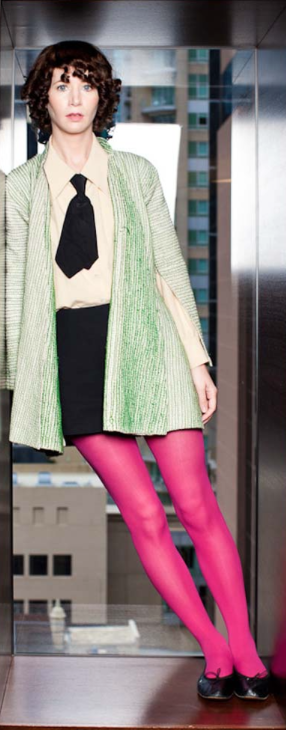 Dunham produced a stack of Post-its, which she described as a perfect representation of July’s style of art: the ones bearing questions July answered fully were placed on the coffee table between them; the ones with unanswered questions were placed on July’s body. At one point, July placed a Post-it on her right nipple, which was so erect that it was “affecting [Dunham’s] OCD.” July’s explanation: “I’m cold and I didn’t wear a bra.” It was that kind of conversation: highly curated and envelope (Post-it?) pushing in the vein of both women’s work.
Dunham produced a stack of Post-its, which she described as a perfect representation of July’s style of art: the ones bearing questions July answered fully were placed on the coffee table between them; the ones with unanswered questions were placed on July’s body. At one point, July placed a Post-it on her right nipple, which was so erect that it was “affecting [Dunham’s] OCD.” July’s explanation: “I’m cold and I didn’t wear a bra.” It was that kind of conversation: highly curated and envelope (Post-it?) pushing in the vein of both women’s work.
Some highlights:
On the difference between novel-writing and “more ADD” forms of art (like filmmaking and collaging):
JULY: To me, those ADD forms are like cheating … you seem so much more prolific than you are! I’ve done two real things in ten years basically and a lot of side projects. At some point you just have to sit and write but … people would say, Do you want to take a break and do an e-mail art project? And I’d be like, Ya! I dreamed of being a writer since I was a little girl; my parents ran a publishing company that was in my house so it was clear that was what you had to do as an adult. But I was pretty nervous about failing so I consciously did all these other things first. If I failed as a writer at least I could still say I was a filmmaker …. Writing is so much more revealing, and it doesn’t have the superpower that comes from being on stage or in front of a camera, where you’re shielded somehow because you’re in a performance.
On how her experience as a film director influenced July’s novel:
JULY: When we’re watching a movie, my husband [director Mike Mills] will say that, wow, was a long shot! I’ll be like – wow, was there was a camera? I immediately forget that what I’m watching was made even though I make movies. But a reader of one of my book drafts picked up that I ended scenes like a filmmaker rather than as an author. I would say: Ya, that’s a great cut. And he pointed out that, actually, I needed to couch transitions for readers.
On two books July found helpful as a novelist:
JULY: I didn’t read in a secret, careful way while writing this but a friend sent me Breed: A Novel, which is a thriller that you can’t put down, and it took reading that for me to actually think that what makes a person read is them wanting to keep turning pages …. [Helen DeWitt’s] Lightning Rods was eye-opening, too.
DUNHAM: DeWitt once wrote a great article about being stalked as a middle-aged woman. It should be a movie thriller. I don’t necessarily think I’m the one to make it but it should be made.
On labeling female artists “quirky”:
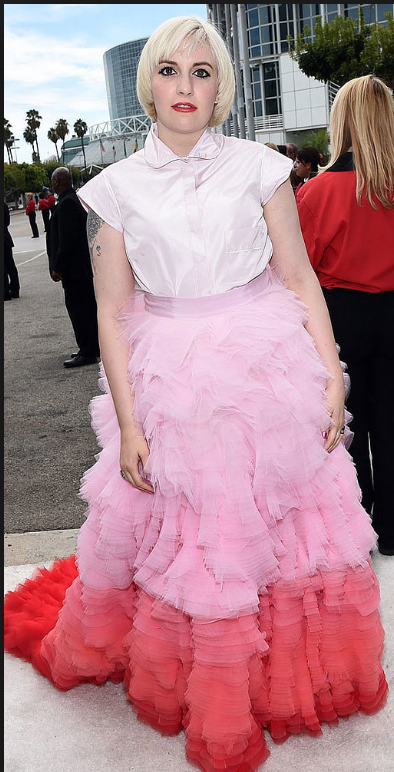 One of my biggest rages is when people use the word quirky around you and your work. It fills me with a hot lava of anger that’s impossible to describe. Something that’s interesting about this book and the violence and sexuality and the sort of barren hideousness of some of the characters in it felt almost like a revolt. There’s no way anyone could apply that word to anything surrounding this book. Even the cover is just, like, stark and black. And I wondered if that was about growing as an artist, if you felt like there was any conscious retaliation, or if you’re just so made of magic that you’re not internalizing any of it, or whether you don’t want to be friends anymore.
One of my biggest rages is when people use the word quirky around you and your work. It fills me with a hot lava of anger that’s impossible to describe. Something that’s interesting about this book and the violence and sexuality and the sort of barren hideousness of some of the characters in it felt almost like a revolt. There’s no way anyone could apply that word to anything surrounding this book. Even the cover is just, like, stark and black. And I wondered if that was about growing as an artist, if you felt like there was any conscious retaliation, or if you’re just so made of magic that you’re not internalizing any of it, or whether you don’t want to be friends anymore.
JULY: It’s funny because people are having no problem calling this book quirky, or annoying, the cousin of quirky … so that party just keeps on rolling on. Although I will say that I think that just culturally things have shifted a little bit. Like that’s a little bit of an old hack, lazy journalist thing to do, especially with a woman. So I think it’s not quite as drastic. But to be honest, I didn’t feel like this was a retaliation; I felt like I was just trying to write a good book and that all my work had darkness in it and humor, but certain things had been easy to latch on to.
On worrying about offending audiences:
DUNHAM: I can never guess accurately what is going to offend or confuse anybody, and I thought maybe [I] could give you the chance now to guess, and defend yourself.
DUNHAM: JULY: Well, it’s funny, you always know there’s going to be something. I worried I’d offend the adoption community. I mean, I did do some research: I talked to a woman who’d adopted a child. But actually, I just looked at the email she sent back after I kind of laid out what I wanted to do. She was like, “Hmmm, I’ve never really heard of there being a home birth with adoption.” You know, there were some details that just weren’t completely holding water for her. And I’m just like, “Oh well, I think it’s going to be okay.” … Post you, I worry all the time because everything you’re being accused of, I’m pretty sure I do. So it’s terrifying.
On an experience that germinated July’s novel:
JULY: I did more than one silent meditation retreat while preparing for novel – I didn’t realize I needed the opposite of that because I was already so self-disciplined. At one of the retreats, we were all wearing black sweatpants and there was this powerful butch woman sitting in front of me with short, gray hair and I just got so obsessed with her … We hadn’t even made eye contact but I was just staring at her neck a lot, and and I, uh, wanted her fingers in me even though I had a boyfriend. She very good at meditating, I could tell just from her neck. Then at the end of the retreat, the woman put on mom pants and a pink sweatshirt with applique, and she hopped in a minivan with her husband. I was heartbroken.
DUNHAM: You can make anyone someone you love if you want it badly enough.
JULY: I told this story recently to Carrie Brownstein and she reminded me I’d already told it to her years ago and she’d made a “Portlandia” episode about it!
On sexuality:
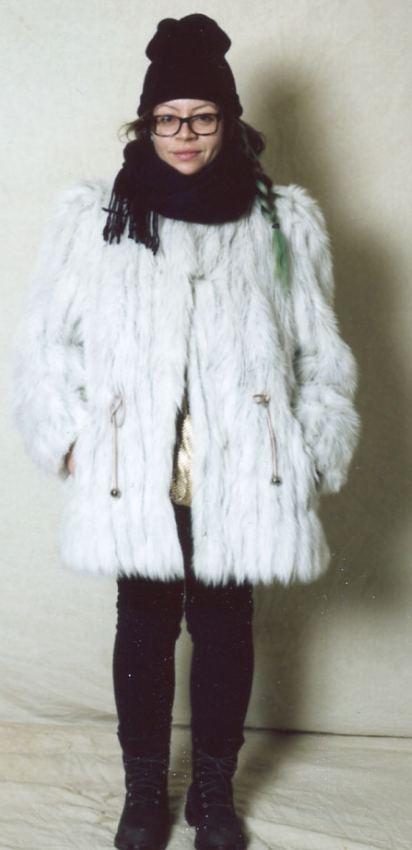 JULY: If you’re a straight woman and you’re having a sexual fantasy where there’s a straight couple having sex, but you’re being the man fucking the woman …
JULY: If you’re a straight woman and you’re having a sexual fantasy where there’s a straight couple having sex, but you’re being the man fucking the woman …
DUNHAM: You’re the man fucking the woman, and you’re fucking the woman the way that men who are in porn or men who are in frats would. You’re not fucking the woman as a nice cardiganed gentleman.
JULY: So you’re taking everything that has been sold to you and kind of accidentally being the wrong person in it. That, I guess, is how I feel about it. I feel like we all watch the same stuff. It all goes into our eyeballs. We’re all sold this kind of sex, and I don’t think that our psyches necessarily discern that much between the genders. I think in general the woman is the sexy one – the one you want to get. So if you’re just looking at it in that way, sex is fucking a woman. There isn’t any other sex.
On motherhood:
JULY: I’m turned off by mom stuff. I keep meaning to join the moms’ group near me and then putting it off. But I’ve always planned on being a mom and I was pregnant when I started this book …. To me, in many ways it’s about unusual women wanting the usual things, and having an unorthodox relationship to motherhood, about a complex and creative woman who’s living a different version of life than she was told she could live, but who ultimately still does want love, does want partnership, does want to be a mother …. There is something that you can look at in another mom’s eyes and say – ya ya ya, we’re both about to cry right now because we love our kids so much. There’s nothing fake about it.
On excretion:
DUNHAM: You talk about shit in the book. I’m upset that I even said that word aloud.
JULY: I did modify one [excretion scene]. Instead of reaching for it with his hand, a character reaches for it with a slotted spoon.
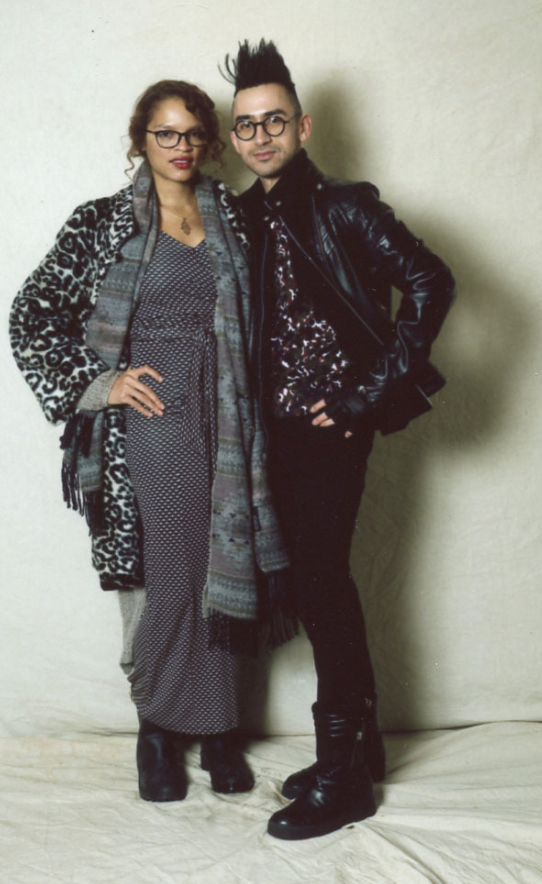 DUNHAM: A slotted spoon! I was watching the film “Wild” and there’s a scene when Reese squats in the woods and I was like … I would never let anyone film me with something that looked shit. But you –
DUNHAM: A slotted spoon! I was watching the film “Wild” and there’s a scene when Reese squats in the woods and I was like … I would never let anyone film me with something that looked shit. But you –
JULY [referring to the notoriously fecal-related scene in “Me and You and Everyone We Know”]: It’s always the sweetest girl in the audience who has a tattoo of that phrase, “Back and forth, forever.” But with this book, I went deeper into my characters’ psyches, which I couldn’t manage to do in any other medium.
On being alone:
JULY: Despite the fact that I’m married with a child, my righteous loneliness marches on.
As the evening drew to a close, attendees flocked to the Austrian speakeasy across the street, where chatter included references to cyborg-feminist scholar Judith Butler, high rents for young artists, and the glamour of getting older. It was like Berlin of the 1930s or, maybe, the 2030s – your basic fantasy or nightmare, once again.
This was originally published in Word and Film.
